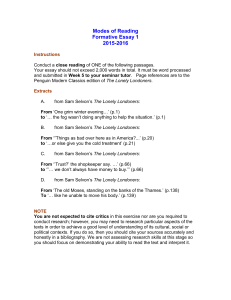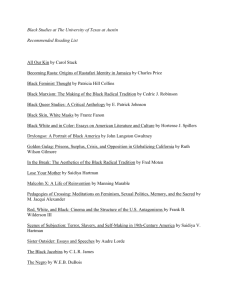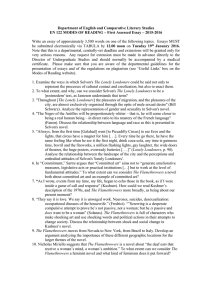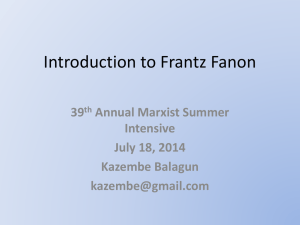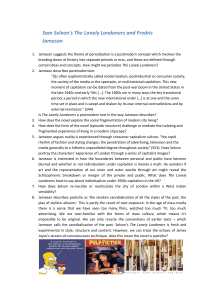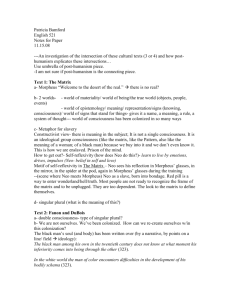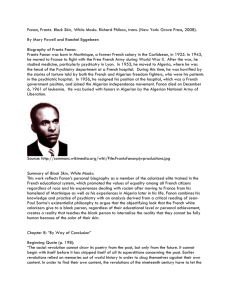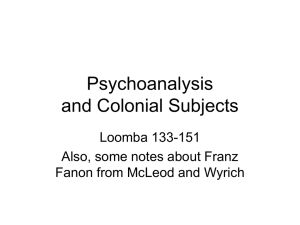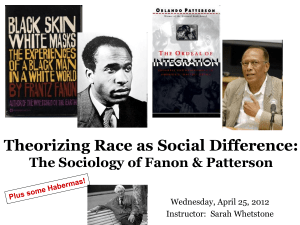Week 4 - Frantz Fanon`s The Negro and Language and Sam Selvon
advertisement
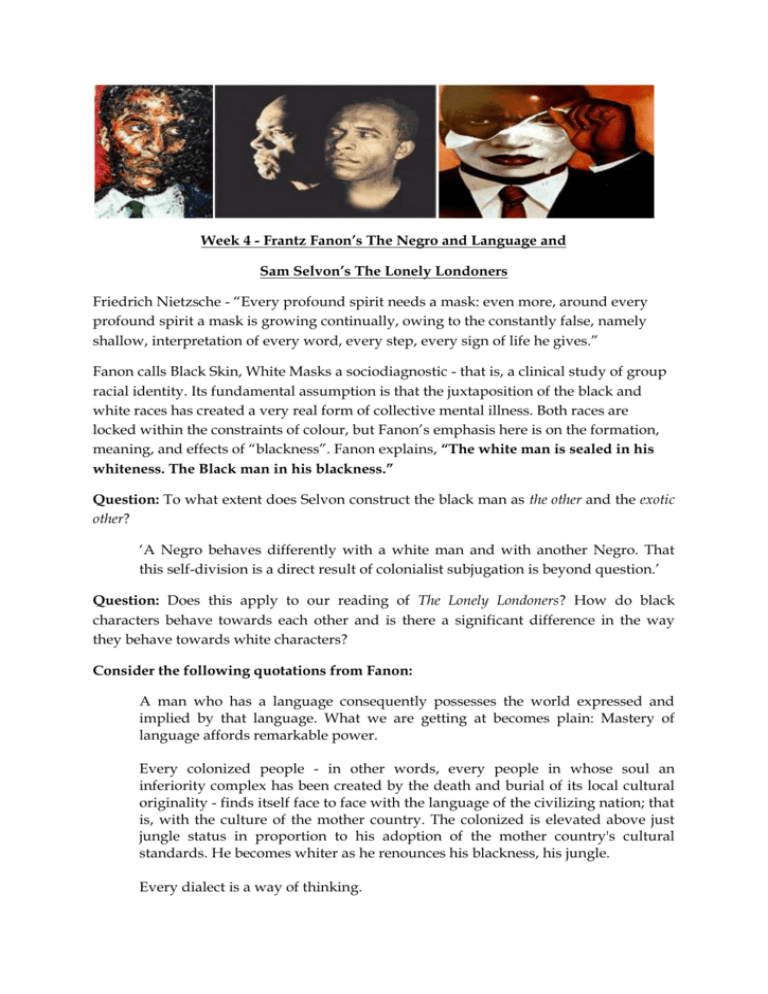
Week 4 - Frantz Fanon’s The Negro and Language and Sam Selvon’s The Lonely Londoners Friedrich Nietzsche - “Every profound spirit needs a mask: even more, around every profound spirit a mask is growing continually, owing to the constantly false, namely shallow, interpretation of every word, every step, every sign of life he gives.” Fanon calls Black Skin, White Masks a sociodiagnostic - that is, a clinical study of group racial identity. Its fundamental assumption is that the juxtaposition of the black and white races has created a very real form of collective mental illness. Both races are locked within the constraints of colour, but Fanon’s emphasis here is on the formation, meaning, and effects of “blackness”. Fanon explains, “The white man is sealed in his whiteness. The Black man in his blackness.” Question: To what extent does Selvon construct the black man as the other and the exotic other? ‘A Negro behaves differently with a white man and with another Negro. That this self-division is a direct result of colonialist subjugation is beyond question.’ Question: Does this apply to our reading of The Lonely Londoners? How do black characters behave towards each other and is there a significant difference in the way they behave towards white characters? Consider the following quotations from Fanon: A man who has a language consequently possesses the world expressed and implied by that language. What we are getting at becomes plain: Mastery of language affords remarkable power. Every colonized people - in other words, every people in whose soul an inferiority complex has been created by the death and burial of its local cultural originality - finds itself face to face with the language of the civilizing nation; that is, with the culture of the mother country. The colonized is elevated above just jungle status in proportion to his adoption of the mother country's cultural standards. He becomes whiter as he renounces his blackness, his jungle. Every dialect is a way of thinking. Question: Why is the Creole dialect so in important in The Lonely Londoners? Question: What is the role of language and place in The Lonely Londoners? Consider the following quotations: The Negro who knows the mother country is a demigod. The middle class in the Antilles never speak Creole except to their servants. In school the children of Martinique are taught to scorn, the dialect. One avoids Creolisms. Some families completely forbid the use of Creole, and mothers ridicule their children for speaking it. In any group of young men in the Antilles, the one who expresses himself well, who has mastered the language, is inordinately feared; keep an eye on that one, he is almost white. In France one says, 'He talks like a book.' In Martinique, 'He talks like a white man. In a more limited group, when students from the Antilles meet in Paris, they have the choice of two possibilities: • Either to stand with the white world (that is to say, the real world), and, since they will speak French, to be able to confront certain problems and incline to a certain degree of universality in their conclusions; • or to reject Europe, and cling together in their dialect, making themselves quite comfortable. The material practices of colonialism translate a denial of history into displacement of culture and language producing what Fanon calls an existential deviation. Because “to speak means to assume a culture” black people deprived of their ancestral languages face an existential dilemma as feelings of racial inferiority are reinforced through language. A black man’s mastery of the colonizer’s language may increase his acceptance by whites, but it alienates him from his root culture. Therefore, how do you read Selvon’s use of language in the novel in relation to characterisation? Fanon was concerned with an underlying question: Could two people of different cultures and traditions live with one another, and ultimately could people overcome the limitations and obstacles posed by exclusivist pretensions within society? How can we respond to this question in relation to Selvon’s presentation of race relations and sexuality in The Lonely Londoners?


